Hillary Clinton: One-term president?
She stands a good chance of winning in 2016. But I bet she'll lose in 2020.
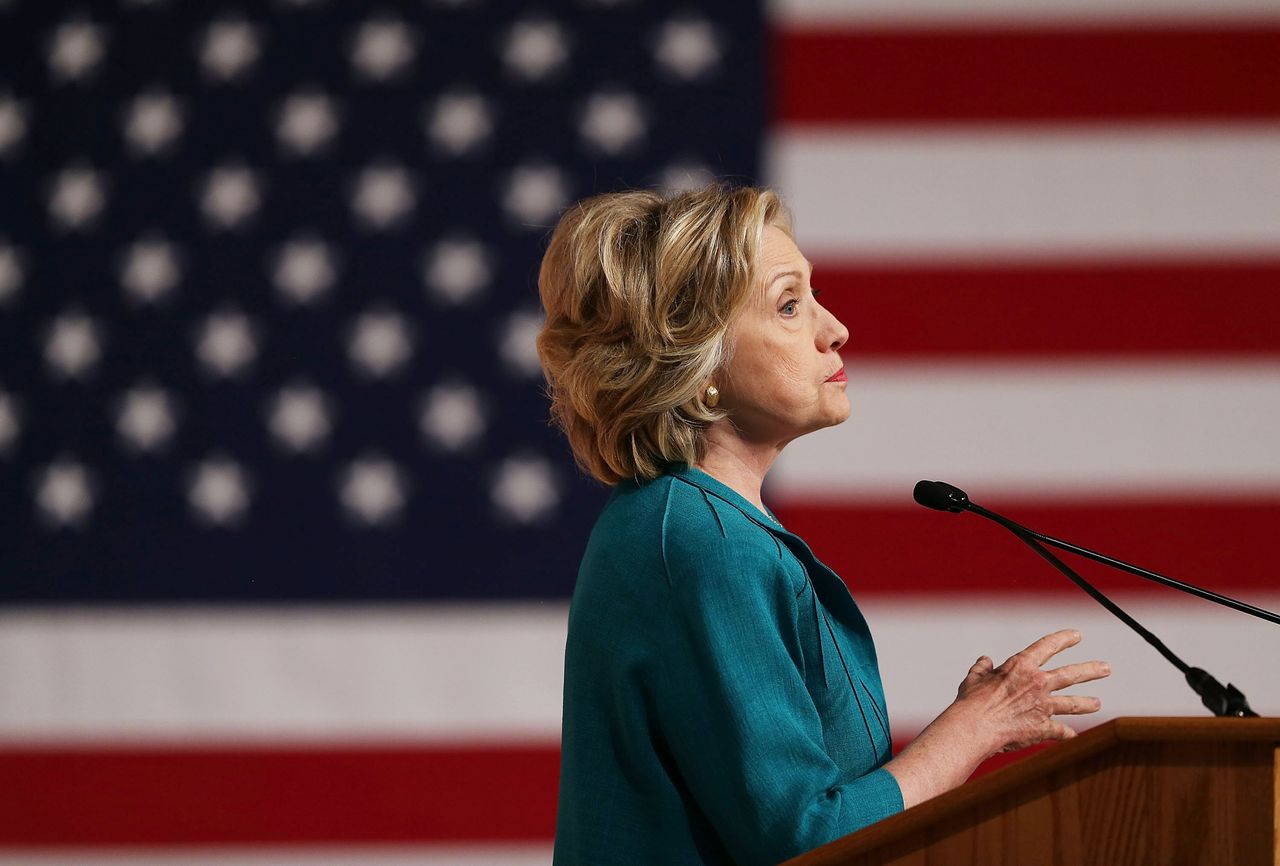

America's president was swept into office by a tidal wave of popular support, generating remarkable enthusiasm and building on a broad distaste for his predecessor, who left behind a flagging economy and an unpopular foreign policy. When his two terms were nearly complete, the president endorsed the clear frontrunner for his party's nomination, a Washington insider whom he'd competed against in his primary campaign two elections past. The president's choice won — but couldn't hold onto that victory. Just four years later, the opposition seized the White House.
This is what happened to Ronald Reagan and George H. W. Bush. And soon, history may well repeat itself: Don't be surprised if this tale of Reagan and Bush Classic is repeated by Barack Obama and Hillary Clinton.
Yes, if I had to call it today, I'd predict that Hillary Clinton will win the presidency in 2016 but probably be a one-term president, just as George H.W. Bush was. The similarities are significant enough that a four-year Clinton White House is hardly unthinkable.
Subscribe to The Week
Escape your echo chamber. Get the facts behind the news, plus analysis from multiple perspectives.

Sign up for The Week's Free Newsletters
From our morning news briefing to a weekly Good News Newsletter, get the best of The Week delivered directly to your inbox.
From our morning news briefing to a weekly Good News Newsletter, get the best of The Week delivered directly to your inbox.
Why Clinton will win in 2016
The 2016 Republican field is a mess. There are so many of them, and somehow they are still mostly generic and boring. The bland confusion of the GOP offering seems to make the general election the Democrats' to lose. This is what happened to Bush in 1988, when the Democrats were spread thin with too many candidates (only three fewer than the 2016 GOP's 17) of varying degrees of seriousness. Though it's early days yet, a recent report from Moody sees a very narrow Democratic victory in 2016.
The demographics are right. On both the left and right, people think it's time for our first woman president. Clinton has integrated her gender into her campaign in (for her) an unprecedented way, even playing a literal "gender card." A majority of voters are women, and a 2016 Republican victory would require a candidate who can appeal beyond the older, whiter, wealthier, mostly male voters who will decide the GOP primaries. That looks dubious.
Like Bush I, Clinton comes out of the administration of a two-term president who is likely to define his party for quite awhile. Ronald Reagan continues — unfortunately, at this point — to be a central figure for the GOP. And though it's too early to make incautious historical prognostications about Obama's legacy, his health care bill, Iran deal, and status as our first black president gives Obama a unique position among Democrats that the one-term Jimmy Carter and Cosby-ish Bill Clinton are unlikely to match. Once the end of Obama's presidency arrives, it's a good bet that many Americans will once again see him more as the charming, widely appealing 2008 Obama, and less as the frustrated president who seems like he needs an anger translator. Being associated with Obama is still probably a net positive for Clinton in 2016. This race is hers to lose.
Why Clinton will lose in 2020
The Obama legacy could saddle Clinton in the future. While Reagan's job approval ratings were less stellar in the 1980s than they are in today's rose-tinted recollection, he was always popular on a personal level. His re-election in 1984 saw him improve on his already impressive 1980 Electoral College results, taking every single state except Minnesota. Obama, by contrast, netted fewer states in 2012 than he did in 2008. And while the president recently mused that he could win a third term were he allowed to run, polling suggests otherwise. This contrast doesn't necessarily mean that Clinton can't win in 2016 — she probably will win — but running (and lasting) as Obama's heir will be more difficult than running (and lasting) as Reagan's. Clinton's position also comes without the added bonus of a record-breaking national win for her predecessor in 2012.
America likes to switch. Since 1953, the Reagan/Bush terms are the only time one party controlled the White House for more than eight years. If Hillary Clinton plays her cards right, she should win in 2016. But she would be defying the precedent of modern history if she won again in 2020. Plus, a second President Clinton would surely be held to an above-average standard of success by a frustrated, independent public both increasingly nostalgic for her predecessors and itching for a change.
The GOP field would be much stronger in 2020. For a lot of younger Republican presidential candidates — Marco Rubio, Scott Walker, Rand Paul, Ted Cruz — the 2016 election cycle may just be a bit too early. Rubio, Paul, and Cruz are all still serving their first term in the U.S. Senate. Come 2020, the crew that seems green and generic today will be vastly more experienced — and tougher for Clinton to beat.
We're due for a one-termer. It's been 24 years since America kicked a president out of the White House, and if historical patterns hold true, it's bound to happen again sooner than later. The strength of the Clinton campaign and disorganization of her GOP opponents might be enough to get her to victory this time around, but once in the White House, that paradigm of advantage will fade. Giving the Democrats another shot in 2016 brooks no guarantee that those first four years will turn into eight.
Sign up for Today's Best Articles in your inbox
A free daily email with the biggest news stories of the day – and the best features from TheWeek.com
Bonnie Kristian was a deputy editor and acting editor-in-chief of TheWeek.com. She is a columnist at Christianity Today and author of Untrustworthy: The Knowledge Crisis Breaking Our Brains, Polluting Our Politics, and Corrupting Christian Community (forthcoming 2022) and A Flexible Faith: Rethinking What It Means to Follow Jesus Today (2018). Her writing has also appeared at Time Magazine, CNN, USA Today, Newsweek, the Los Angeles Times, and The American Conservative, among other outlets.
-
 The strange phenomenon of beard transplants
The strange phenomenon of beard transplantsIn The Spotlight Inquiries for the procedure have tripled since 2020, according to one clinician, as prospective patients reportedly seek a more 'masculine' look
By Harriet Marsden, The Week UK Published
-
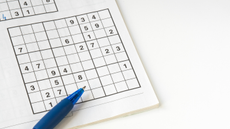 Sudoku medium: March 26, 2025
Sudoku medium: March 26, 2025The Week's daily medium sudoku puzzle
By The Week Staff Published
-
 Sudoku hard: March 26, 2025
Sudoku hard: March 26, 2025The Week's daily hard sudoku puzzle
By The Week Staff Published
-
 'Seriously, not literally': how should the world take Donald Trump?
'Seriously, not literally': how should the world take Donald Trump?Today's big question White House rhetoric and reality look likely to become increasingly blurred
By Sorcha Bradley, The Week UK Published
-
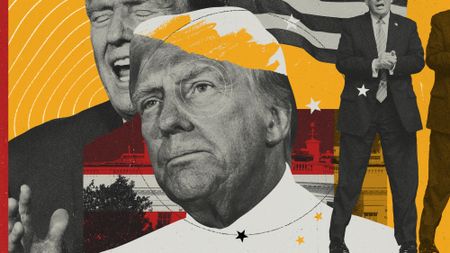 Will Trump's 'madman' strategy pay off?
Will Trump's 'madman' strategy pay off?Today's Big Question Incoming US president likes to seem unpredictable but, this time round, world leaders could be wise to his playbook
By Sorcha Bradley, The Week UK Published
-
 Democrats vs. Republicans: who are the billionaires backing?
Democrats vs. Republicans: who are the billionaires backing?The Explainer Younger tech titans join 'boys' club throwing money and support' behind President Trump, while older plutocrats quietly rebuke new administration
By Harriet Marsden, The Week UK Published
-
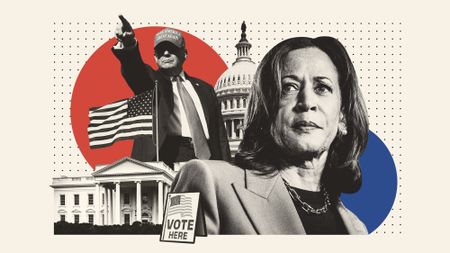 US election: where things stand with one week to go
US election: where things stand with one week to goThe Explainer Harris' lead in the polls has been narrowing in Trump's favour, but her campaign remains 'cautiously optimistic'
By Harriet Marsden, The Week UK Published
-
 Is Trump okay?
Is Trump okay?Today's Big Question Former president's mental fitness and alleged cognitive decline firmly back in the spotlight after 'bizarre' town hall event
By Harriet Marsden, The Week UK Published
-
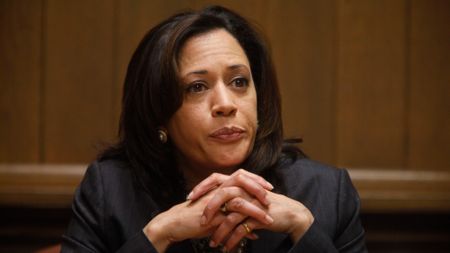 The life and times of Kamala Harris
The life and times of Kamala HarrisThe Explainer The vice-president is narrowly leading the race to become the next US president. How did she get to where she is now?
By The Week UK Published
-
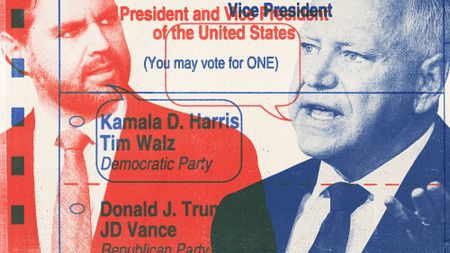 Will 'weirdly civil' VP debate move dial in US election?
Will 'weirdly civil' VP debate move dial in US election?Today's Big Question 'Diametrically opposed' candidates showed 'a lot of commonality' on some issues, but offered competing visions for America's future and democracy
By Harriet Marsden, The Week UK Published
-
 1 of 6 'Trump Train' drivers liable in Biden bus blockade
1 of 6 'Trump Train' drivers liable in Biden bus blockadeSpeed Read Only one of the accused was found liable in the case concerning the deliberate slowing of a 2020 Biden campaign bus
By Peter Weber, The Week US Published
